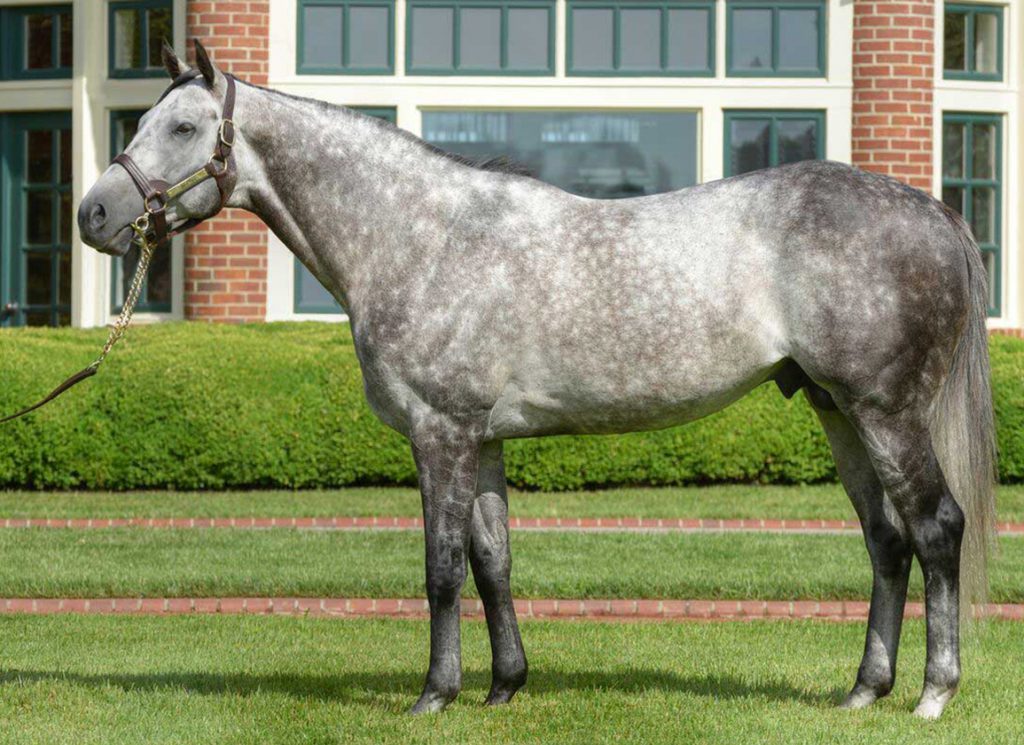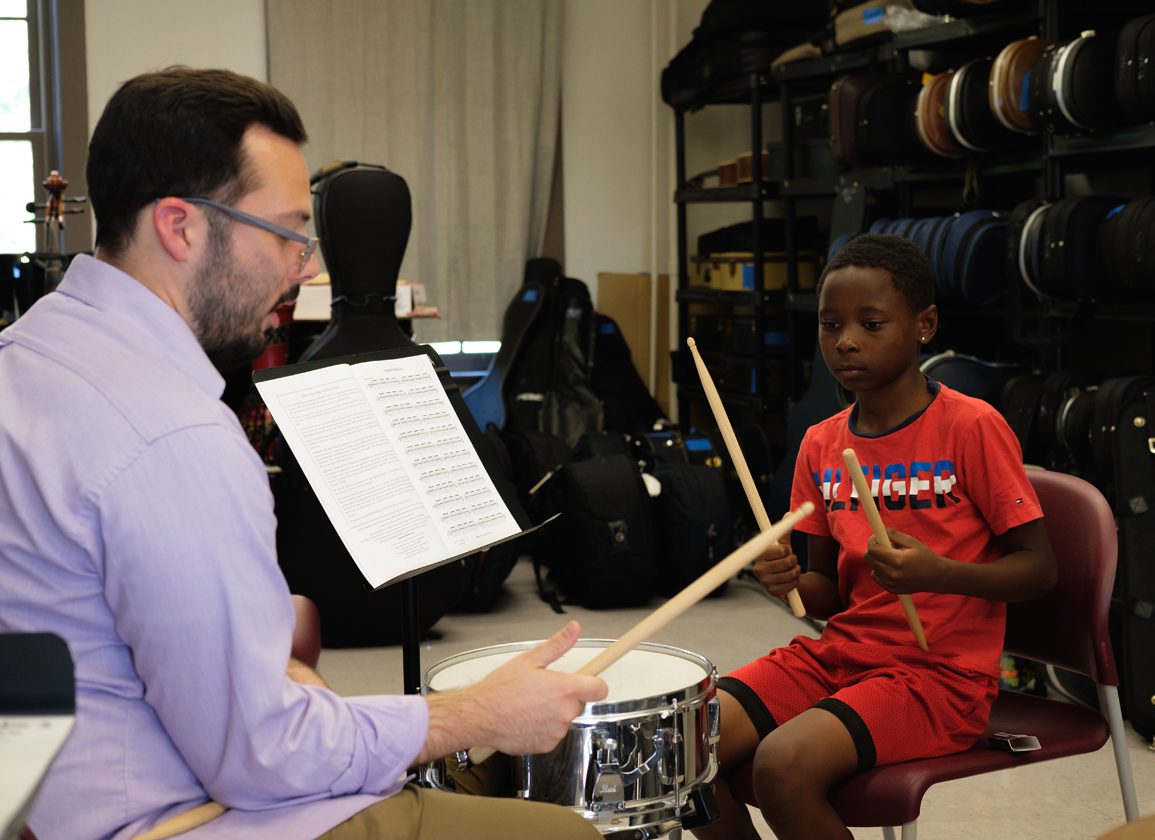Somehow this is a real sweet spot in the market. For a stallion farm, the $10,000 cover is a particular pitch: you're a cent away from offering a horse at four figures, but you feel that dropping him into a low-rent neighborhood might be beneath his dignity. You're offering a very accessible fee, but you're not going to let him look cheap.
That makes this a surprisingly congested zone, ample for separate assessment. And since clinging to a five-figure fee somewhat represents a show of faith, some of these sires tend to have a fair case in their favor. At a time when fees are widely perceived to be challenging, this is a nook that harbors some decent value.
It is broadly populated by three types. First are the veterans who have achieved an honorable viability over the years (and we know how difficult that is) but are now suffering the commercial prejudice in favor of fresher blood. On the other hand, we have a bunch of younger guns, typically riding out the bumps between the vogue of novelty and distrust of racetrack exposure. And then there are a few in between, horses in their prime who have settled into a workable niche that keeps them competitive with the next tier up.
The senior group is headed by a remarkable pair, both about to enter their 20th year at stud, with a body of work behind them that will forever embarrass the vast majority of this lot. And there's plenty of life left in MINESHAFT, judging from seven stakes scorers this year (one for each of his lifetime Grade I winners) at a ratio that Uncle Mo, Medaglia d'Oro and Tapit have barely matched. A 1-2 in the GII Cigar Mile showcased his continued prowess, both Hoist the Gold and Senor Buscador already owning wins at that level earlier in the year. The former is now in the millionaires' club, and will soon be joined there by the latter assuming he perseveres in 2024.
SKY MESA is still more neglected, yet similarly remains in the top 15 active sires by lifetime earnings, with ratios of black-type and graded stakes action that measure up respectably against all but the elite names. Remember that these old boys can draw some venerable influences close: Sky Mesa's first three dams are by Storm Cat, Affirmed and Round Table, yet the continued vigor of his family has been lately evinced by his half-sister's son Maxfield (Street Sense). Mineshaft's first three dams, meanwhile, are by Mr. Prospector, Hoist the Flag and Herbager (Fr)! Both Mineshaft and Sky Mesa have superb families and to be able to access their blood, relatively undiluted by the huge books nowadays flooding the gene pool, is a diminishing opportunity too obvious to any enlightened breeder to require the formal gilding of a place on the Value Podium.
Really I should have them both up there, but they covered 40 mares between them last year and that tide is hardly going to turn at this stage. Happily, we know them to be in good hands and they will remain long cherished once their service is finally over.
Ditto another veteran, MIDNIGHT LUTE, who had a few more mares than that pair last spring but again hardly the numbers commensurate with his five elite winners–including not just Midnight Bisou but more recently Smooth Like Strait, himself now launching a stud career at a bargain fee–and the solid ratios that also keep him inside the top 20 active sires.
At the other end of the spectrum, meanwhile, most of the younger sires are awaiting the emergence of their first runners. (By the way, don't forget that we gave the absolute beginners a separate assessment, at the outset of this series, highlighting the claims of one standing at this fee in COUNTRY GRAMMER.)
One of the younger guns that has already tested the water on the racetrack, however, has done so with quite promising results. For while COLLECTED found himself in a very competitive intake, his first sophomores this year included winners of the GII Del Mar Derby, GII Pennine Ridge S. and GII Black-Eyed Susan S.

Drain the Clock | Sara Gordon
Among several only just embarked on their new careers, INDEPENDENCE HALL and especially DRAIN THE CLOCK have some big numbers behind them–unsurprisingly, in view of the 101 Beyer clocked by the former in his record-margin romp in the GIII Nashua S., or the similar precocity displayed by the latter as prelude to his GI Woody Stephens success. TACITUS, HAPPY SAVER and IDOL were contrasting brands, on the margin of the elite around a second turn but amply demonstrating the functionality of their aristocratic genes. Happy Saver, in fact, has none other than Weekend Surprise replicated top and bottom: she's his third dam, while her son A.P. Indy is the damsire of Super Saver.
The latter has another son trading in this bracket in RUNHAPPY, whose fee slips despite producing a GI Hopeful winner in the $12,000 yearling Nutella Fella. We saw another glimpse of the real Smile Happy in the GII Alysheba S., meanwhile, and the stakes are now pretty minimal for those keeping the faith with Runhappy.
A couple of nuggets at this level are the Lane's End pair, THE FACTOR and TONALIST. The former had a quiet year by his very consistent standards, and needed to come down in line with his yearling yield, but there's no knocking a stellar lifetime ratio of two winners to three named foals. As for Tonalist, a single horse has blatantly distorted his earning power but what Country Grammer has represented much more fairly is all the toughness one would hope to inherit from Tapit over Pleasant Colony. It's heartening to see that this was recognized by as many as 115 mare owners last spring, twice as many as Tonalist entertained in 2021.
Another farm that demands a visit for those working to this kind of budget is Spendthrift. Admittedly its $10k trio have all long shed the novelty value prized by its more commercial clients, as was clear when their latest yearlings entered the ring. Continued demand in the breeding shed, however, suggests that people can glimpse a different type of value here.
Sure enough, on the track JIMMY CREED produced another three graded stakes winners including the evergreen Casa Creed, whose Fourstardave H. win was his fourth at the top level. Jimmy Creed is carving out a very viable place at this level, with his book back up into three figures last spring, and only narrowly misses joining one of his neighbors on the podium.
VALUE PODIUM
Bronze: HONOR A.P.
Honor Code–Hollywood Story (Wild Rush)
Lane's End $10,000

Honor A.P. | Sarah Andrew
This is our clear pick among the many young stallions whose farms are hoping that this kind of fee will prove only a foundation, once some actual runners can attest to their genetic prowess.
That, of course, is the reverse of the usual scenario. As a rule, the commercial market backs away faster and faster, the closer a stallion gets to the unsparing exposure of the racetrack. Everyone knows that most young sires will fail, and tries to ride their fleeting commercial momentum. If you truly believe in a horse, however, this is the time to double down.
Only where could you hope to find a combination of top-class pedigree, physique and performance for just 10 grand? Well, right here at Lane's End–that's where.
Honor A.P. beat the subsequent Horse of the Year at Santa Anita, and did so fair and square. He would surely have gone close to doing so again, but for his nightmare trip in the September “Derby”. The matter was left unresolved by his further misfortune, but nobody could deny that he had ticked the performance box in the little opportunity he had.
Physique? How does $850,000 Saratoga yearling sound?
And as for the genetic package, he's out of a Grade I winner (at both two and five) by a sire from one of the great modern families. True, Honor Code himself has proved a rather disappointing sire, to the extent that he recently became another far-sighted “rescue” by a Japanese industry prepared to play a longer game. Honor Code promptly came up with Honor Marie's GII Kentucky Jockey Club S. as something to remember him by, but his departure is probably good news for his son. It must have been difficult to launch Honor A.P. alongside his own sire, when the latter had failed to pull away into a higher tier of the market.
Honor A.P. now gets a clear run even as he prepares to launch his first runners. He made a perfectly solid sales debut, his 48 yearlings processed at $55,145 highlighted by a $375,000 colt. Just because Honor Code did not prove consistently potent, that doesn't alter the fact that Honor A.P. converted a stellar genetic legacy into something luminously functional on the track. Unsurprisingly he struggled for numbers in his third book, but we've been given every incentive to hang in there with a fee cut from $15,000. With luck, his quality will start to now take his mares past those floundering against the dull tides of quantity.
Silver: FROSTED
Tapit–Fast Cookie (Deputy Minister)
Darley $10,000
Could it be that Frosted has finally reached a point where he becomes a value proposition?
There's no denying that he has been a letdown to this point. The fastest GI Met Mile winner in history retired with his 123 Beyer as the most expensive option of the 2017 intake, at $50,000, and averaged around $225,000 with his first yearlings. And here he is, after 344 starters, still waiting for that breakout Grade I winner.
In the meantime, his fee has slumped consecutively until settling at $10,000 last year. But if we reset our bearings accordingly, we'd have to concede that he has had a quietly productive campaign, his 18 black-type performers including three graded stakes winners (plus one in Australia). True, he's still benefiting from some of the classy mares he received early on: Keeneland Grade III winner Frost Point, for instance, is out of a Grade I-winning millionaire. So we'll have to see whether he can maintain this kind of output with rather lesser raw materials, but it's very striking that last spring Frosted moved his book up from 108 to 154.
Evidently the kind of commercial breeders who could not initially afford him have by no means given up on the gray, and it may be that a different kind of cocktail will shake some fresh flavors–as a sprint influence, for instance, and even as a turf one, as in the case of globetrotting Jasper Krone–out of a horse that once seemed to have the world at his feet. After all, he traded 66 of his latest crop of yearlings at $65,475, which would do very nicely indeed off this kind of fee; while one sold for $50,000 in the previous crop soared to $900,000 at OBS in April.
Frosted is still only on his fourth crop and that leaves ample scope for a market thaw.
Gold: CROSS TRAFFIC
Unbridled's Song–Stop Traffic (Cure The Blues)
Spendthrift $10,000

Cross Traffic | Spendthrift
This horse has endured some dazing fluctuations since being crowned champion freshman by multiple indices in 2018. His reward in 2019 was the attention of 188 mares at $25,000, up from just 60 at $7,500 the previous year. The resulting crop were juveniles of 2022, when 33 individual winners from 79 starters put him second in the all-comers' 2-year-old table, with no fewer than 13 of them earning black-type. And how did they follow through this year? Well, 63 of his 105 sophomore starters won, notably GI Ashland S. winner Defining Purpose. And another 3-year-old filly was on track for a stunning Grade I debut when taking her unbeaten spree of five (Saratoga maiden and stakes at two, another stakes and two graded stakes at three) into the Test S. Her name, you will scarcely need reminding, was Maple Leaf Mel.
From his older stock, Cross Traffic also produced homebred Here Mi Song to win the GIII Commonwealth S for a three-horse program that also includes her dam, an apt measure of the type of service he can perform for the smaller breeder.
Ludicrously, however, his 2020 book plunged by two-thirds and he ended up with only 28 live foals, of which a bare dozen started this year, leaving him submerged in the general sires' table despite 14 black-type performers. He must continue to ride out this slump after another couple of quiet years, but his book last spring responded to his 2022 deeds with a rally to 84.
The hope now must be that Cross Traffic can consolidate the second chance he has earned from those fickle breeders. It will assist his cause that the familiar precocity of his stock tends to be fortified with maturity, after the fashion of near-millionaire Ny Traffic who soaked up four campaigns. Cross Traffic himself, remember, raced only as a 4-year-old, when making up for lost time with a GI Met Mile second and GI Whitney success on just his fourth and fifth starts.
His family has some fairly exotic seeding, albeit no more so than the big horse on this farm. And it is full of runners, not least his dual Grade I-winning dam. She has additionally given Unbridled's Song the mother of Gulfport (Uncle Mo), who won the Bashford Manor by a dozen lengths last year before his promotion to replace Forte (Violence) in the GI Hopeful S. There's some real genetic vigor here, then, and Cross Traffic has now shown twice over-with his juveniles of 2018 and 2022-the kind of crop he can produce if only he's given the chance. And, at this kind of money, a proper, sustained chance is just what he deserves.
Sires At $10,000: Breeders Selections

Fabricio Buffolo | Keeneland
Fabricio Buffolo, Buffalo Bloodstock
Gold Medal: Happy Saver
I think he is a nice example of what a true American dirt horse looks like, especially with such an impressive and powerful shoulder. I think it's hard to not think about his name and not associate it with such a solid and sturdy front end. He was a very good racehorse who showed grit and resilience throughout his races against all the best in the country. He is an interesting young stallion.
Silver Medal: Midnight Lute
When considering the group of stallions with runners standing at $10,000, I think that he stands out with a solid percentage of black-type horses and black-type winners to runners, including five Grade I winners which is not usual at this price bracket.
He's quite versatile with his progeny having good performers on different surfaces and distances, and the key lies in finding a mare that can suit him physically.
Bronze Medal: Jimmy Creed
He is another horse that has done fairly well at this stud fee bracket getting a good percentage of black-type horses compared to others, including some with higher price tags. It's evident that the market can be quite tough on horses like him that have had a decent number of crops, but he has received continued support in the last few years attesting to the confidence that breeders have found in him.
Elgin Hamner, Prime Bloodstock
Gold Medal: The Factor
If The Factor had not left for a couple of years, I believe he would be a constant top 25 sire. He's great value to have a shot at a good runner.
Silver Medal: Frosted
I was really high on him coming out, he's a strong horse with a strong race record. Love the Tapit over Deputy Minister. Now, he has established himself as a racehorse producer.
He's always top two or three of his crop and gets a bigger, stronger horse than The Factor. They seem to run anywhere and are selling ok. He just needed a couple of big horses earlier.
Bronze Medal: Goldencents
It's hard to make it as a sire, but they run early and often. They don't sell as well as they should (can lack size), but each one born could be a runner.
Honorable Mention: Honor A.P.
No runners yet, but the physical when he stamps them is pretty strong. We have to keep that A.P. blood going, it's the best two turn blood of the last 20 years, and he is one of the last of that line with a shot.

The post Value Sires For 2024, Part 3: The $10k Club appeared first on TDN | Thoroughbred Daily News | Horse Racing News, Results and Video | Thoroughbred Breeding and Auctions.
Source of original post









